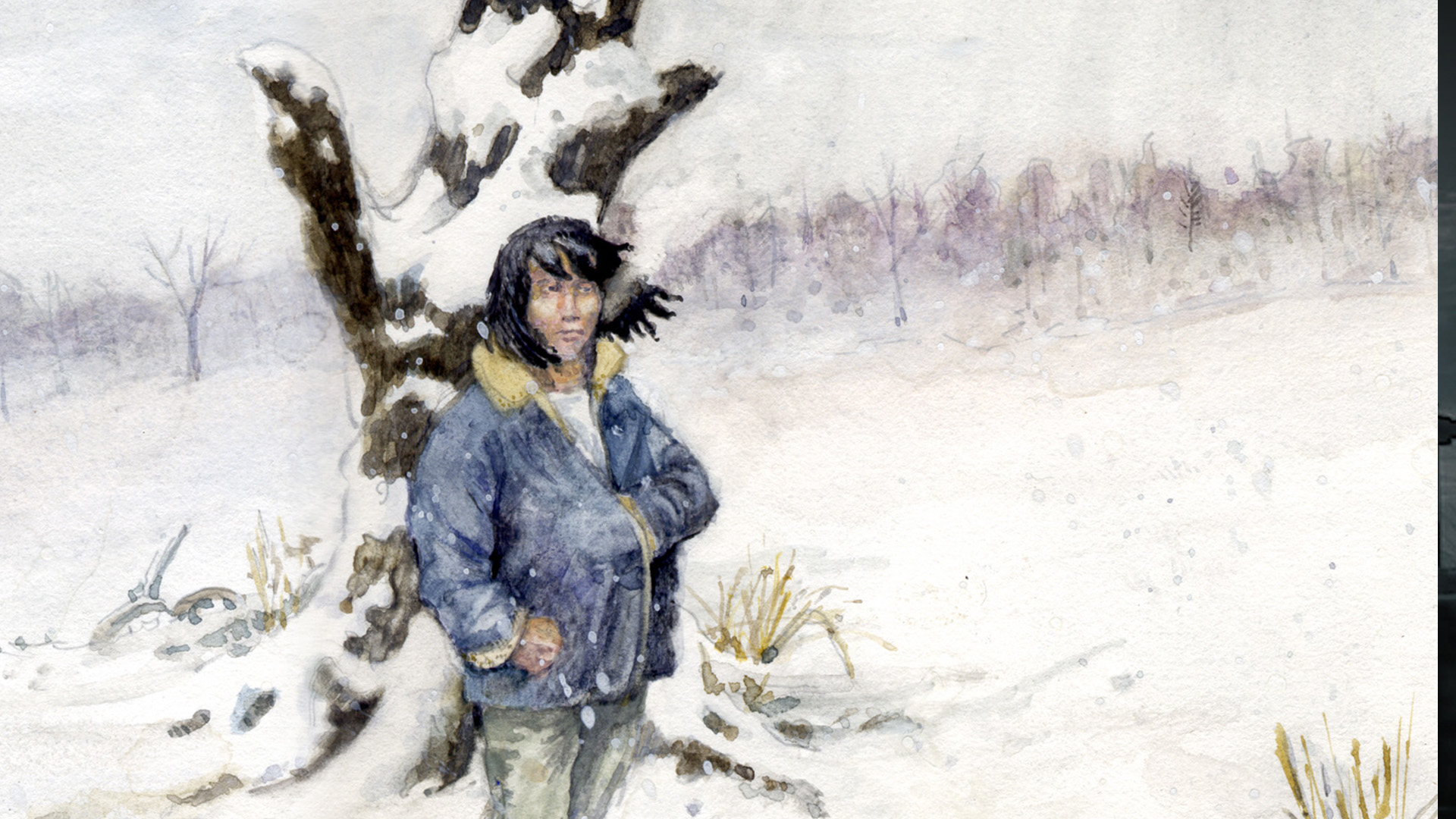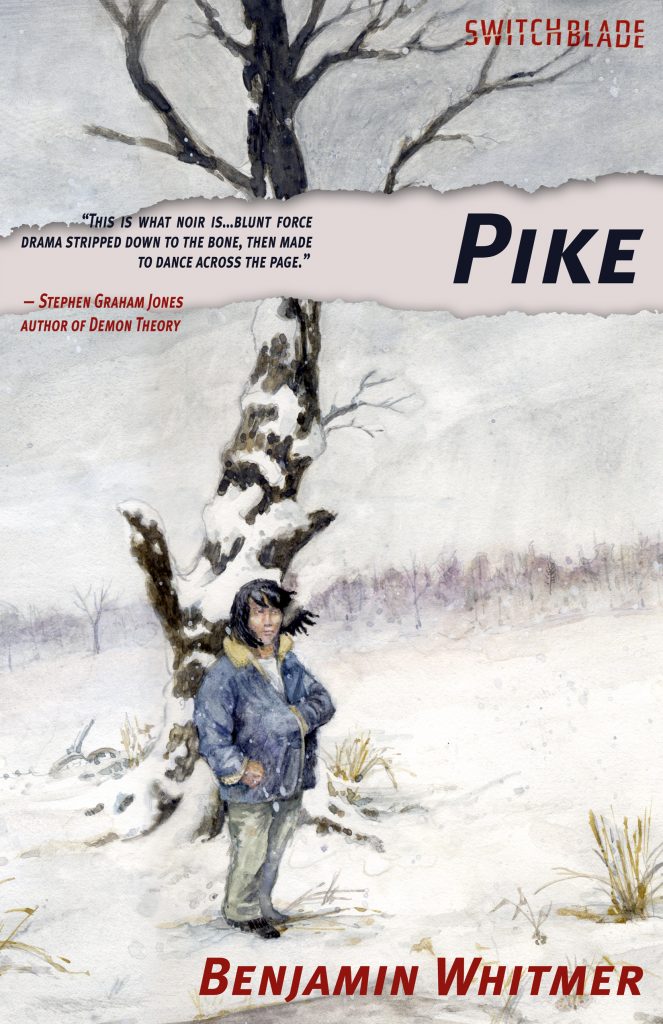Spinetingler Magazine
July 2010
One of the books that I’ve been looking forward to reading the most this year was Pike by Benjamin Whitmer. It seems that the PM Press folks are running a bit behind schedule with getting their books out on time this year (all speculation btw nothing confirmed) so when the release date of July 1st came and went I did something that I’ve never done before, I ordered an e copy from the publisher, easily downloading a .pdf file within minutes. The main reason I mention this is so you know up front, at least for now, the availability of this book. Because you are going to want to read it.
Over at his blog Benjamin Whitmer said that crime fiction is “supposed to be scary”. He also says that noir isn’t “supposed to be the police procedurals and wisecracking detective serials that dominate the crime shelves” and that they should be something different:
“This is nightmare, hunker-down-in-your-soul, how-deep-can-you-dig, release-the-fucking-bats territory.”
Benjamin Whitmer makes these tenants Bible truth in his debut novel Pike. With this novel Whitmer announces his presence with a kick to the teeth and he is the real deal.
One of the things that strikes me about Pike is the clarity of the writing. It says what it needs to say in the clearest and most direct way possible. The prose is so clear that it enhances the power of the story. Clearly this is a novel that has been carefully gone over numerous times to makes sure there are no snags.
I was reminded of two movies while reading Pike: Unforgiven and The Way of the Gun. I was reminded of The Way of the Gun for a simple reason. Like the movie Pike strives for a level of realism in violent actions and weaponry that feels more blunt and powerful when compared to more stylized offerings. The character Pike will remind some of William Munny from Unforgiven. Like Munny, there is something almost elemental in him, as if he sprung whole from somewhere other, somewhere more powerful. Pike is possessed of a deliberateness in his actions that that adds to this notion of him being more a force then a man – or at least a force of a man.
The three characters are very interesting. Pike as the titular character is the one we get to know the most. We see from his past that he is not a good guy, at all. But there is this barest hint of something approaching decency at this stage in his life. He’s not good, he’ll never be good, but there are a couple of facets of him that aren’t totally bad.
Rory’s past largely defines who he is and his actions. Of the three men he is perhaps the most innocent (to the extent that such a thing is possible) and evokes the most sympathy from the reader. He ain’t no teddy bear though, he’s a violent man addicted to pills and desperately wants to avoid the hellhound he believes is on his trail.
Derrick is a dirty cop with a racist bent. The book literally opens with him shooting an unarmed black man and starting a riot that forces him to leave town. He is a man used to having some modicum of power and wielding it with impunity.
These three men are all scary and violent and its only because of circumstance that you are pulling for Pike and Rory and even then it’s only slight. In another book one could just as easily have been rooting against them. In a bid for a larger audience violence is often times softened by making the characters more palatable or by giving us reasons to justify those actions. Writers are often told to make their characters sympathetic and that is what a reader wants. When a reader identifies with a character the actions that the character takes are justified by the reader. It’s an act of complicity that softens the hard edge. The flip side can be true too. If you make a character easily hated then what drives them becomes unnecessary. In Pike we are asked to bear witness to the actions of these violent men, and to follow their confrontation to the end, whichever end it may be, and we are never asked to forgive them or sympathize with them.
Pike’s journey asks the question, is it possible to have an unrepentant search for redemption, without offering any answer. Even by the end of the book the reader is forced to ask, has Pike changed and if so how much really? His actions would suggest that he hasn’t and if that is the case then that may not bode well for Wendy. Will Pike treat Wendy like he treated his daughter?
Pike may just be the best noir novel that we’ve seen in years, a true black novel if there ever was one. I won’t name names but much of the purported noir class of crime fiction just can’t hold a candle to what is on display here, Pike is hardcore and the real deal all others are pale imitators.
In a just world Pike will salt the Earth and reset the clock for noir in the 21st century, forcing others to re-examine what can be done with the form.
If readers haven’t gotten hip to Switchblade yet they need to. Though their output is slow (2 release a year for the last two years), and they don’t have titles listed for next year that I can tell, they are very much like the Black Lizard of the new century, especially when it comes to finding the new talent that the community hasn’t heard of yet. Especially when you consider the association that Jim Nesbit, Sin Soracco and Barry Gifford have with the publisher.







